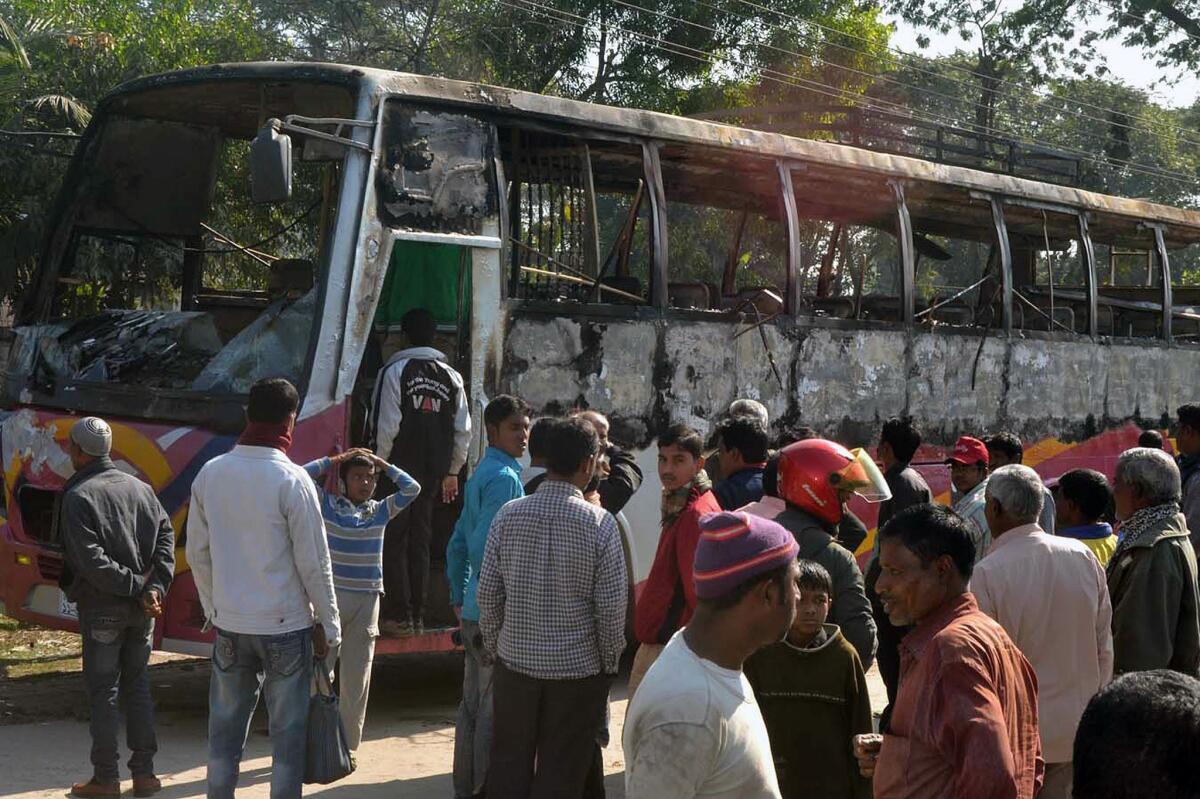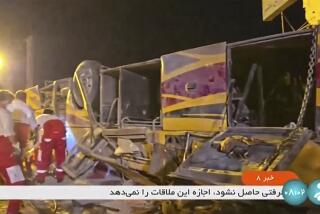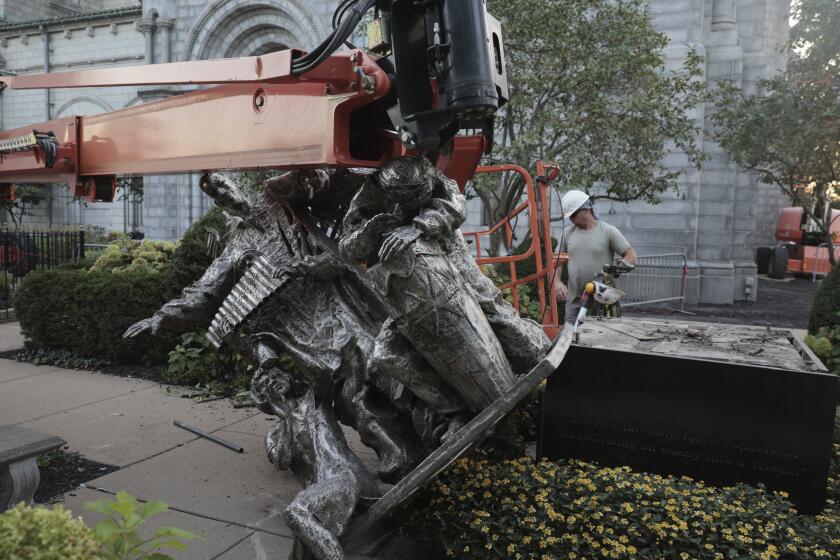7 killed in Bangladesh violence as U.S. urges calm

Seven people were killed Wednesday in worsening political unrest in Bangladesh, including five people who perished when demonstrators firebombed a passenger bus, officials said.
Elsewhere, two political activists were assassinated in the latest round of tit-for-tat violence by supporters of rival parties that has claimed at least 22 lives this month.
Protesters in Rangpur, in northern Bangladesh, hurled a gasoline bomb at a bus early Wednesday, instantly killing three adults and a child and injuring several others, police said. Another woman later died of her burns in a hospital, officials said.
Authorities blamed supporters of opposition leader Khaleda Zia, who has called for a nationwide transport blockade, and said they arrested eight opposition militants in connection with the attack.
Police have confined Zia, the former prime minister, to her office for nearly two weeks after she called for mass demonstrations on the anniversary of elections that her Bangladesh Nationalist Party says were stolen. Human rights groups say police have arrested political activists and journalists in what they describe as a crackdown on Zia’s party.
On Tuesday, unidentified gunmen shot and injured one of Zia’s senior advisers, Reaz Rahman, in central Dhaka in an attack that drew worldwide condemnation.
The State Department said it was “shocked and saddened” by the attack on the 74-year-old former foreign minister and urged authorities to allow for peaceful protests.
“There is no justification for such outrageous and cowardly acts in a democratic Bangladesh,” State Department spokeswoman Marie Harf said Tuesday.
The British high commissioner in Dhaka called on Zia’s opposition coalition and Prime Minister Sheikh Hasina’s Awami League to hold talks to resolve the crisis.
Zia’s party boycotted last January’s parliamentary elections over fraud concerns, allowing Hasina to retain power. Squabbling between the two leaders has plunged the impoverished South Asian nation into prolonged turmoil, with Hasina’s critics accusing her of increasing authoritarianism while Zia’s supporters resort to often violent protests.
Special correspondent Kader reported from Dhaka and staff writer Bengali from Mumbai, India.
For more news from South Asia, follow @SBengali on Twitter.
More to Read
Sign up for Essential California
The most important California stories and recommendations in your inbox every morning.
You may occasionally receive promotional content from the Los Angeles Times.











